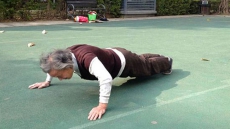Waiting in the emergency room is an experience many of us share. Here are four commons reasons behind that wait.
Other patients require more urgent care: Unlike a walk-in clinic, the emergency room does not work on a first-come, first-served basis. Specially trained nurses use triage (meaning “to sort”) to determine which patients need the most urgent care. The sickest people are always seen first. You may think the person being rushed in ahead of you doesn’t look that bad; however, their condition could be life-threatening.
You need additional tests or lab work: If your condition requires lab work or a CT scan, slowdowns can occur while you wait for the test and subsequent results, especially if there are several other patients ahead of you. This can also cause longer delays for those in the waiting room.
The unexpected has occurred: A natural disaster, multiple car accidents, or violent incident involving several casualties can lead to a sudden influx of patients who are in critical condition and need urgent care. This means longer wait times for those with less urgent needs.
You come at a busy time. Sometimes it’s just busy and, even if the hospital increases staff during peak hours, if the ER is full, the wait time will be longer. Emergency room wait times are unpredictable and depend on many factors. Using the ER wisely – knowing when to go and when to seek care elsewhere – can help you avoid unnecessary waiting.
For serious and life-threatening issues such as a heart attack or stroke, heavy bleeding, severe breathing difficulties, severe burns, ongoing seizures or a major accident, dial 9-1-1 or go to your nearest ER. But for common illnesses and minor injuries, think twice. If your medical issue is not an emergency, you could wait a long time before being seen.
Here are some other options:
See your family doctor or nurse practitioner. They know you and your medical history. Same-day urgent appointments may be available.
Visit a walk-in clinic. Check medimap.ca for walk-in clinic wait times and hours. Request that a copy of the visit be sent to your family doctor. (medimap.ca is available in most Fraser Health communities, although not all clinics are participating yet.)
Call 8-1-1. A HealthLinkBC representative will help you find health information and services, or connect you with a nurse for health advice, a dietitian for nutrition information or a pharmacist for medication advice. Available 24/7.
Speak with your pharmacist. Your pharmacist can provide advice for over-the-counter medications for minor issues and may be able to provide an emergency prescription refill for chronic conditions.
Call the Fraser Health Crisis Line at 1-877-820-7444 for a mental health crisis, 24/7. Call Fraser Health’s START program at 1-844-782-7811 for a child/youth mental health crisis.
Call 9-1-1 or go to the nearest emergency room for critical or life-threatening conditions. Hospital emergency rooms are not the place to go for common illnesses or minor injuries.
For an injury or illness that requires immediate medical attention, but is non-life-threatening, visit an Urgent and Primary Care Centre. Find a location at fraserhealth.ca/urgentcare.
For mental health/substance use concerns, call the 24/7 Fraser Health Crisis Line at 604-951-8855 or toll free at 1-877-820-7444.
For Surrey residents, if you or your loved one has an urgent mental health or substance use concern (that does not require. hospitalization), visit the Surrey Mental Health and Substance Use Urgent Care Response Centre.




